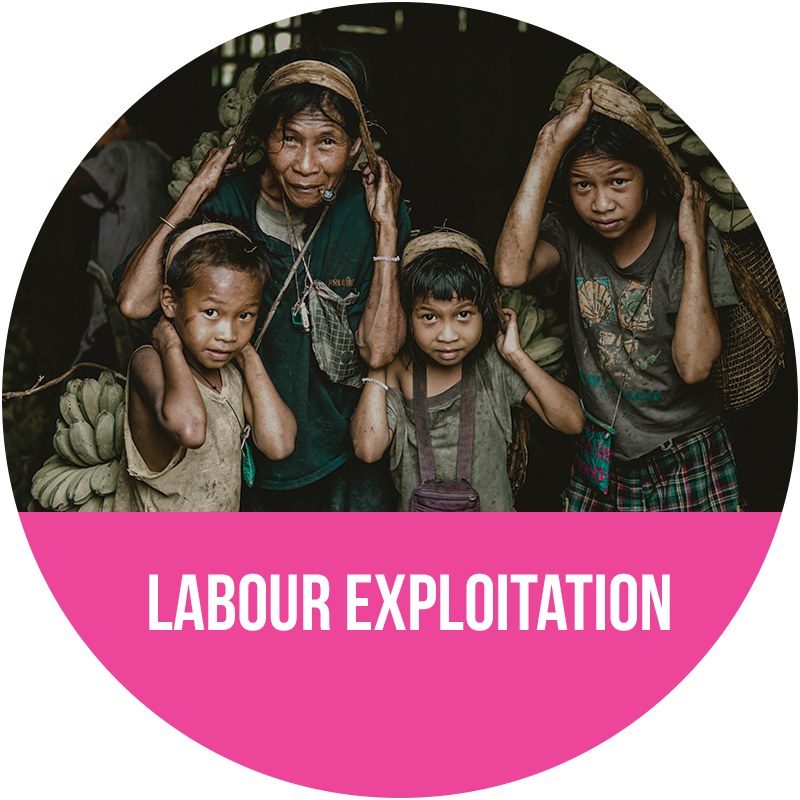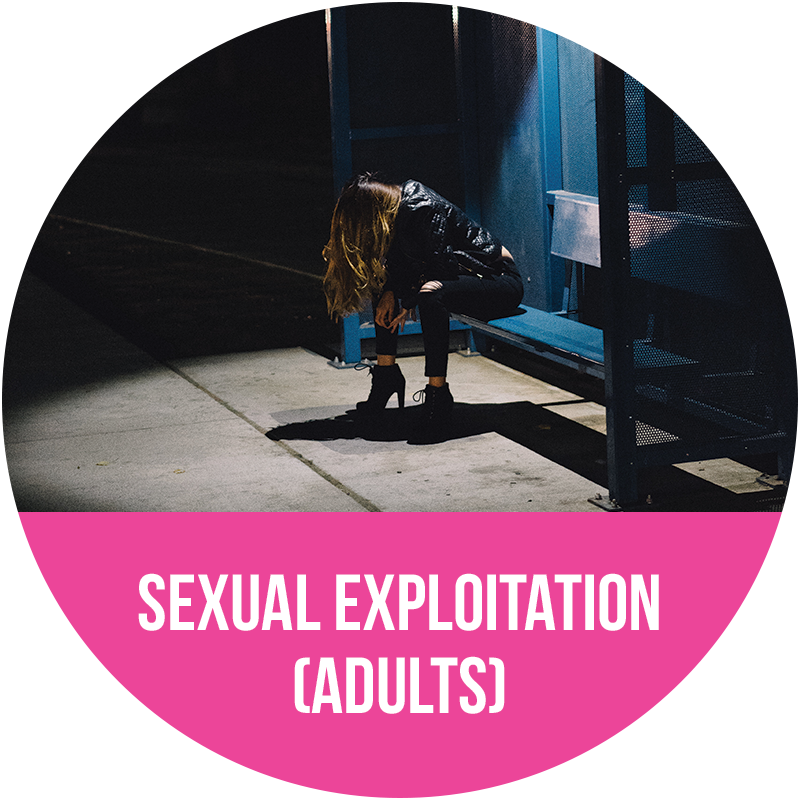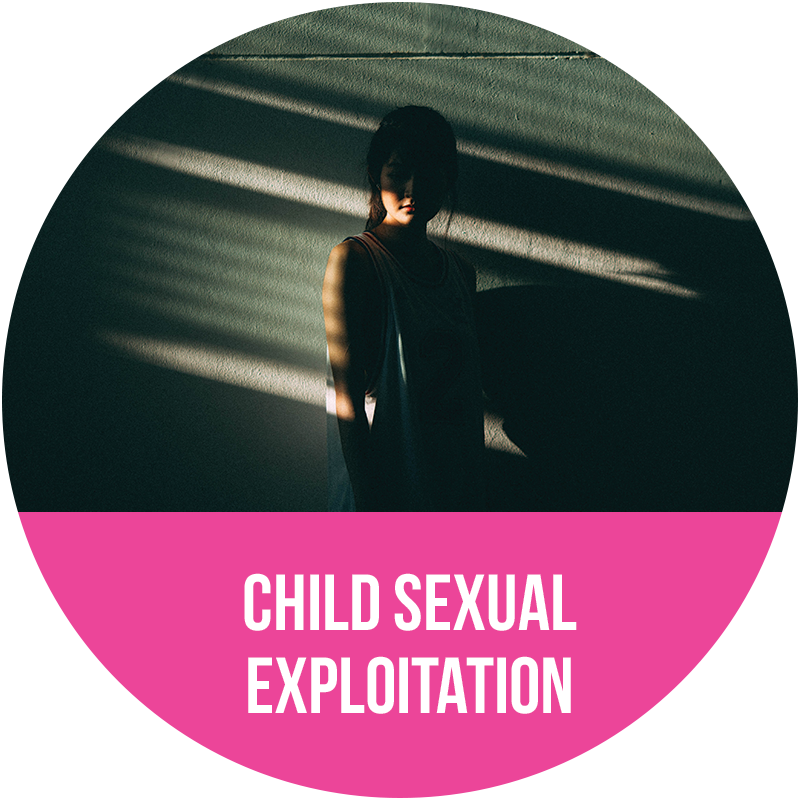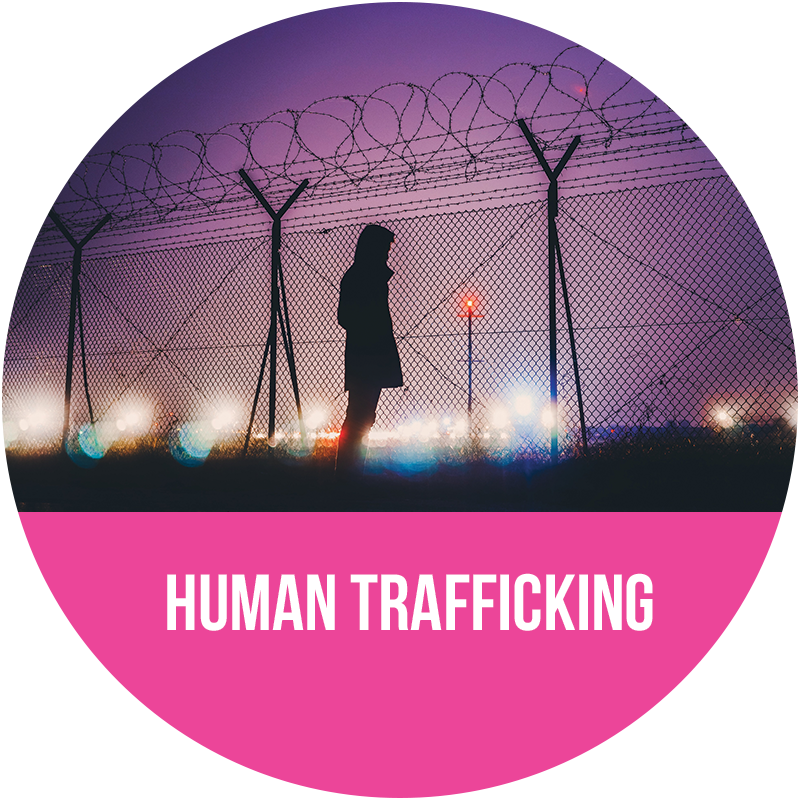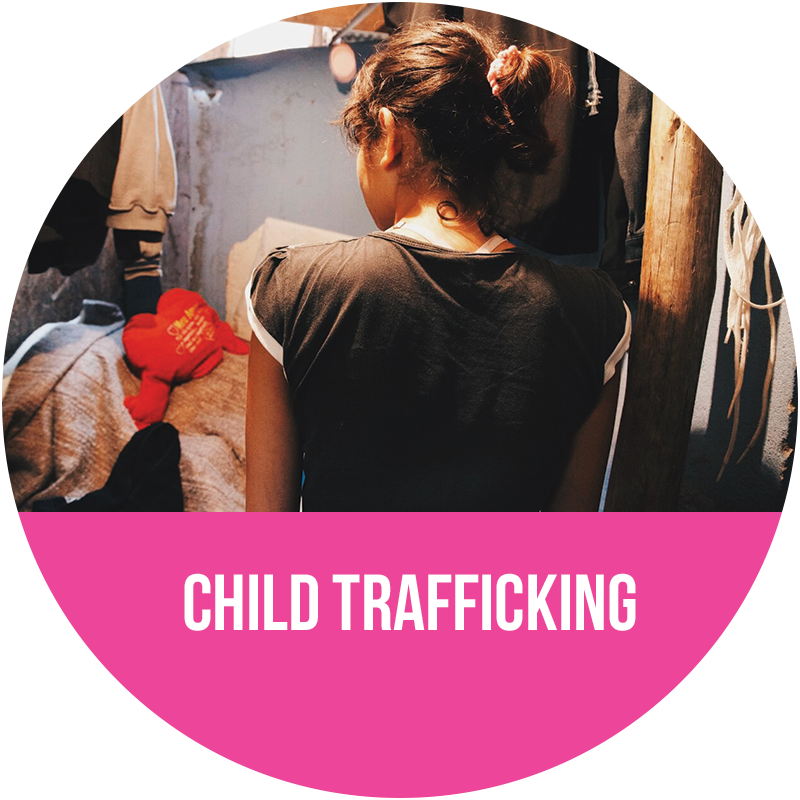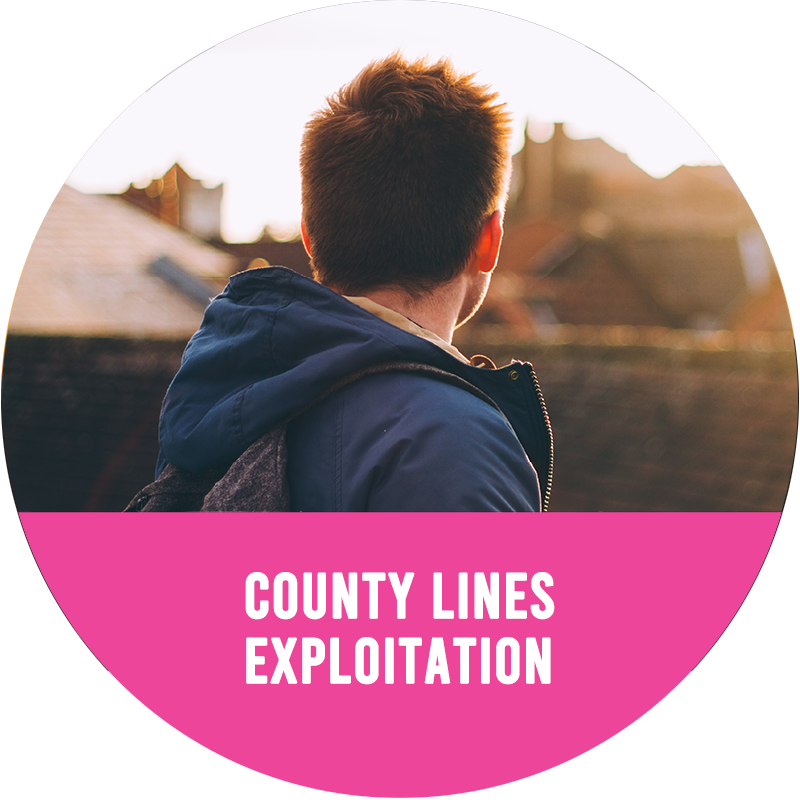#KNOWTHESIGNS to make a difference
The abuse, exploitation and trafficking of children and vulnerable people are often hidden issues which are difficult to identify. Many victims don’t tell anyone what is happening to them, and many may not even realise that they are being abused or exploited.
If you #KNOWTHESIGNS, you can help protect people from these forms of violence.
CHILD ABUSE
A child or adolescent could be being abused (sexually, emotionally or physically) if they…
Act out violently against others Become secretive and reluctant to share information Are reluctant to go home, or want to run away from home Act withdrawn or anxious Are unable to explain injuries or have other physical symptoms (including soreness, pregnancy, STIs) Avoid being alone with certain people Exhibit age-inappropriate sexual behaviour or knowledge Appear to be the subject of an adult’s sexual attention Are on their own without appropriate adult supervision Are secretive about their phone/online activity
LABOUR EXPLOITATION
An adult, child or adolescent may be being exploited through labour if they…
Are not free to leave or come and go as they wish They are controlled by another person Are unpaid, paid very little, or only paid through tips Are lacking official identification documents They display overly fearful, depressed, and submissive behaviour Work excessively long and/or unusual hours Are not allowed breaks or suffer under unusual restrictions at work Owe a large debt and are unable to pay it off Were recruited through false promises concerning the nature and conditions of their work Have little to no knowledge of the local language, and/or they only know labour-related words Are distrustful or suspicious of authority figures/law enforcement
SEXUAL EXPLOITATION (ADULTS)
An adult could be being sexually exploited if they…
Are isolated from their family and friends Are unable to explain injuries, possessions or income Have strange markings/brandings/tattoos (e.g. ways for exploiters/pimps to identify them) Are being controlled by another person Display paranoia or lack of trust Have untreated health or dental problems, particularly sexually-transmitted infections Display a lack of self-esteem with feelings of shame and humiliation Avoid making eye contact and interacting with others
CHILD SEXUAL EXPLOITATION
A child or adolescent could be being sexually exploited if they…
Seem to not know where they are Are easily startled, agitated or afraid Act unusually withdrawn or depressed Are unable to explain injuries or possessions Have strange markings/brandings/tattoos (e.g. ways for exploiters/pimps to identify them) Are seen in a hotel without staying there/other explanation Are accompanied by an older ‘boyfriend’ or vaguely identified male companion Are dressed up to look older than they are Often return home late or are staying out all night Attempt self-harm or suicide
HUMAN TRAFFICKING
An adult could be a victim of trafficking if they…
Are lacking official identification documents Avoid eye contact, social interaction, and authority figures/law enforcement Have tattoos/branding on their body (e.g. ways for traffickers to identify them) Are not allowed to go into public alone, or speak for themselves Seem to adhere to scripted or rehearsed responses in social interaction Show signs of physical injuries and abuse (victims of human trafficking are often beaten in areas that will not damage their appearance) Seem to not know where they are, with an inability to clarify where they are staying Have little to no knowledge of the local language Were recruited through false promises concerning the nature and conditions of their work Live somewhere with high security measures (e.g. opaque or boarded up windows, bars on windows, barbed wire, cameras) Have few or no personal possessions, or control over their finances
CHILD TRAFFICKING
A child or adolescent could be a victim of trafficking if they…
Are unsure of where they are (e.g. what country, city or town they are in) Have strange markings/brandings/tattoos (e.g. ways for traffickers to identify them) Are accompanied by an older ‘boyfriend’ or vaguely identified male companion Are easily startled, agitated or afraid Are dressed up to look older than they are Have no freedom of movement, or no time for playing Have no documentation or falsified documentation Have no immediate family living with them Are unable or reluctant to divulge personal details (e.g. tell address or name to authority figure)
CRIMINAL EXPLOITATION
An adult, child or adolescent may be being exploited through criminal exploitation if they…
Have low self-esteem/very closed off to others/scared to talk; Live in houses of multiple occupancy, where people live or are kept in squalid conditions; Live in a property with a number of individuals that is deemed an unsafe number; Have signs of psychological trauma / mental health issues / self harm; Show signs of injury / abuse – in need of medical care; Are fearful and mistrust those who appear to be in an authoritative position; Are concerned of losing money / unexplained acquisition of money; Lack of identification documents.
COUNTY LINES EXPLOITATION
An adult, child or adolescent may be being exploited in county lines if they…
Have a noticeable and often sudden change in personality, behaviour and moods such as becoming hostile, aggressive, secretive, unsettled, anxious, scared, depressed or controlling; Disengage from education, family and/ or their normal social life; Have periods of going missing – this could be for short periods or for days, weeks or months at a time; Unexplained new items – sometimes called ‘gifts’. This could include new expensive trainers, mobile phones, jewellery or clothes; An increase in using their mobile phone with lots of messages and calls coming through as well as multiple phones; Their attendance, behaviour or performance at school declining; Spend time with a new group of older friends, or people you are never allowed to meet; Return home with rucksacks, boxes or packages that you don’t recognise; Unexplained injuries including bruises, burns or cuts; Unexplained sums of money; Come to the attention of the police.
DOMESTIC SERVITUDE
An adult, child or adolescent may be being exploited in county lines if they…
Cannot leave their employer’s home and forced to carry out; Domestic tasks such as providing child-care, cooking and cleaning; Are not be able to leave the house on their own; Work in excess of normal working hours; Lack of identification documents Have signs of psychological trauma / mental health issues / self harm; Unexplained injuries including bruises, burns or cuts; May not interact often with the family they are employed by May not have their own personal living space, food, water, or medical care May stand out from other family members, noticeable as they may wear poorer quality clothing
What You Can Do
The best way to fight and protect children and vulnerable people from abuse, exploitation and trafficking is by REPORTING any cases you believe may be taking place.
Trust your instincts, and don’t hesitate. If you see something, say something.


